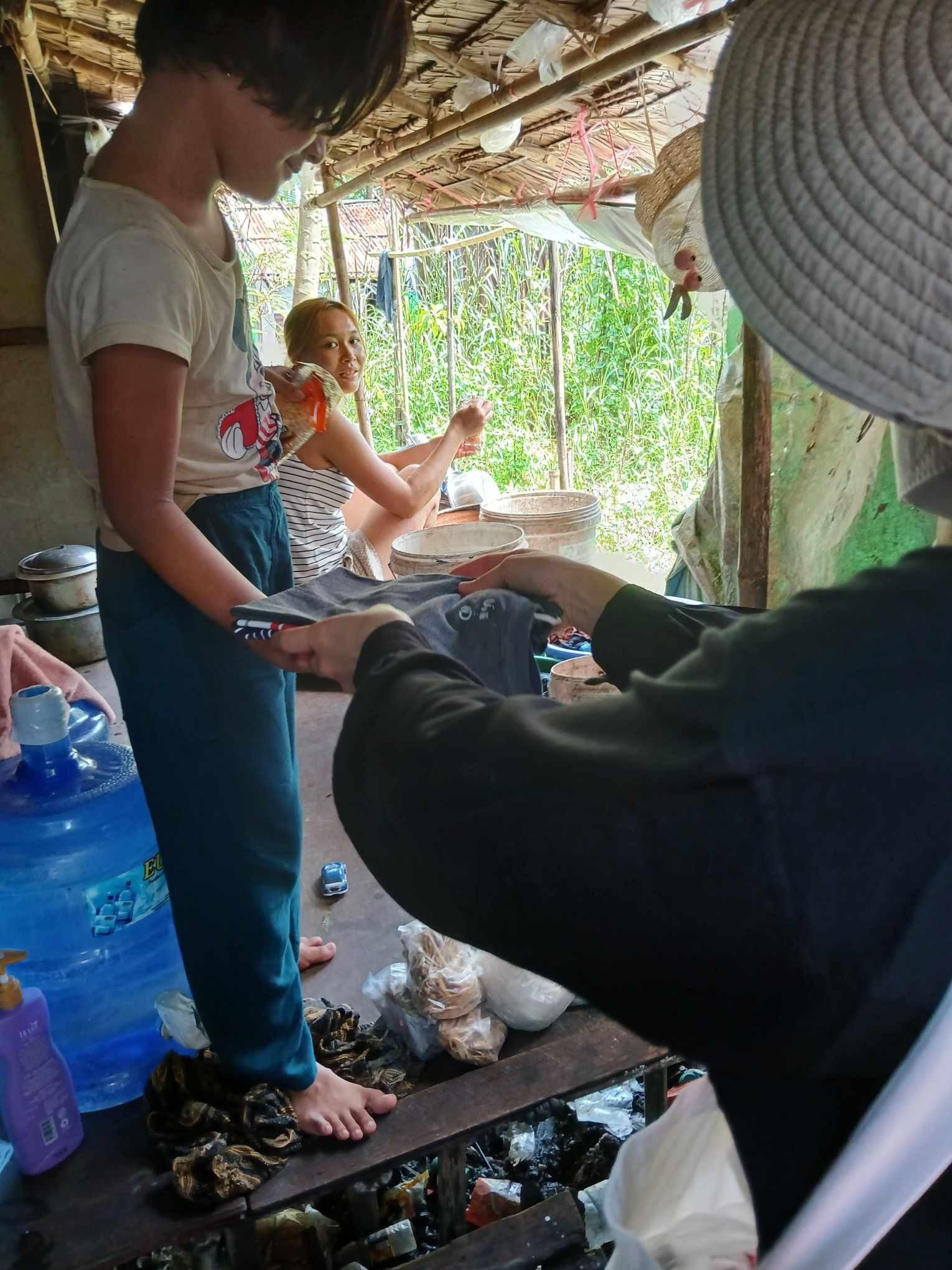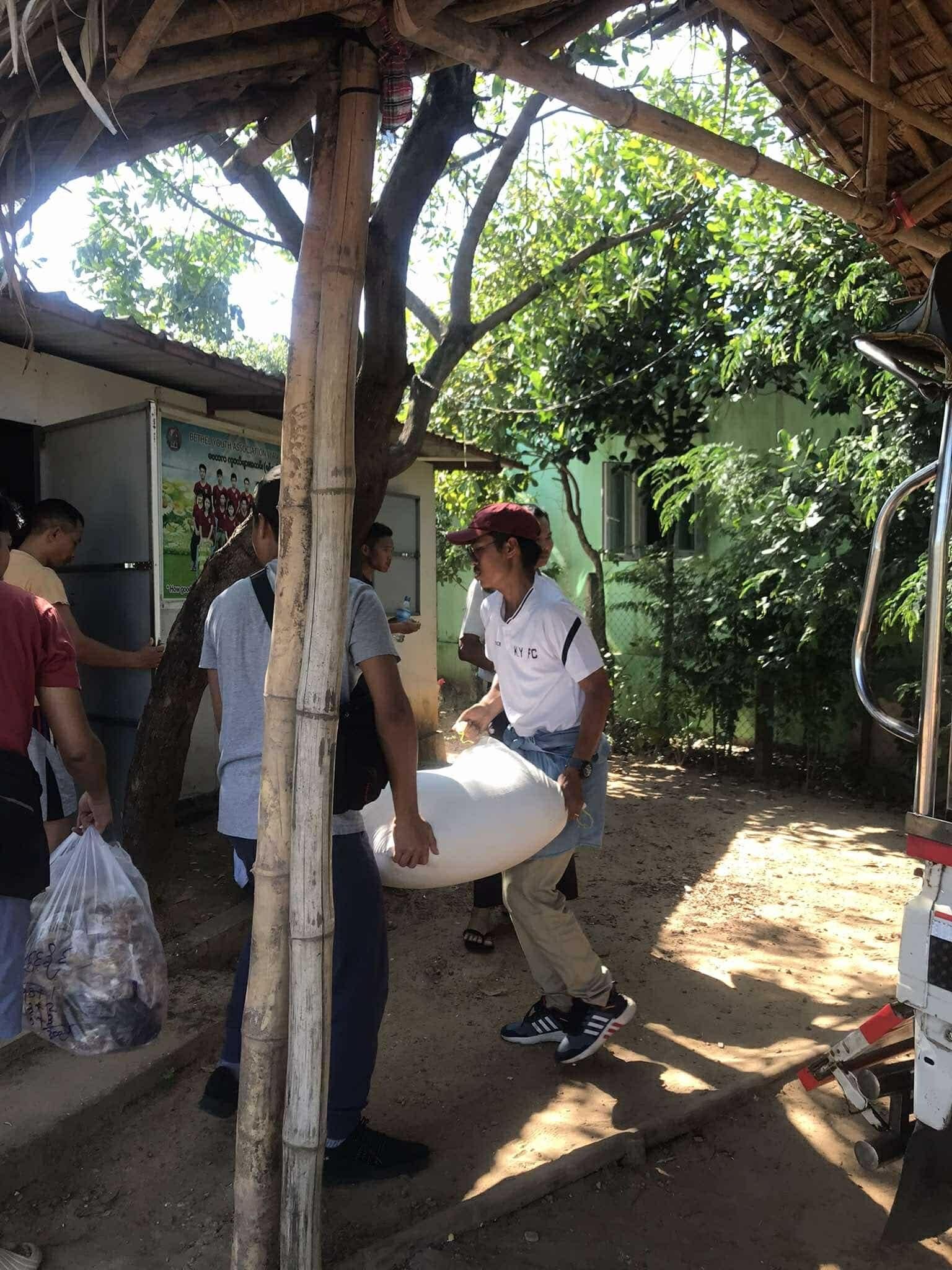Hope in the Fire: Delivering Aid Against All Odds
The road was dust and rubble, winding through villages now abandoned, their homes left hollowed and charred by war. In the distance, the sound of artillery echoed, a grim reminder that the violence was never far. For the hundreds of families caught in its wake, survival had become a daily calculation, a fragile gamble against hunger, disease, and the cruelty of an unseen enemy.
When the local aid team arrived, they carried more than just supplies; they carried the quiet determination to reach those left behind. Their mission was impossibly simple: deliver aid where none was meant to reach. They moved carefully, splitting into smaller groups to avoid the military blockades that had strangled off humanitarian access. Every step was a risk, but the stakes left no room for hesitation.
They found the first group deep in the hills of Chin State, where nursing mothers held onto their infants, their arms too thin, their milk long dried up from exhaustion and fear. The workers handed them formula and clean water, watching as trembling hands grasped bottles with the urgency of those who had been waiting too long. Some of the children were sick—fevers raging, bellies bloated from malnutrition. The team moved quickly, distributing anti-parasitic medicine, treating infections, bandaging wounds that should have never been left to fester.
In Karenni State, where the violence had been relentless, the situation was even more dire. The military’s grip had choked off nearly all aid, leaving families to survive on whatever scraps they could find. Burn victims and those suffering from severe starvation were barely clinging to life. The team administered emergency care, cleaning wounds, dressing burns, and doing what they could for those too weak to move. Each act of care was a small rebellion against the suffering forced upon them.
Then, on another trip into Arakan State, we read back their reports about entering into the wreckage of lost villages, and on one occasion they met a man who had barely survived a burn wound from an airstrike. His bandages were filthy, his skin blistered raw. He winced as the team cleaned the wound, his lips pressing into a thin line, holding back the pain. “I didn’t think anyone would come,” he admitted.
But they had. And this is all thanks entirely to our donors who, more than four years on, continue to believe in our mission and stand in solidarity with those in Myanmar insisting on their dignity and human rights.
Despite junta blockades and active combat, the teams which we supported reached over 820 people! They provided food, clean water, and medical treatment in places where no one else could go. They navigated shifting frontlines, racing against the next attack, knowing that at any moment, the opportunity to save lives could be lost.
Delivering aid in Myanmar is not just about logistics—it is a battle against forces determined to weaponize hunger and sickness. Military roadblocks, airstrikes, and constant surveillance meant that every journey carried risk. In some areas, evacuations were needed before the next attack came. The window of opportunity was small, but the team made it count.
Each delivery was a defiance. Each meal, each bottle of water, each bandage was proof that someone still cared, that they were not forgotten. Even in the shadow of war, kindness found a way through.
This support did more than just provide aid—it gave people hope in a place where hope is often the first thing stolen. But the need remains overwhelming. The next village, the next family, the next child waiting for help is still out there, and without further funding, there will be no way to reach them. So we ask again for your kind contribution. Every dollar can mean the difference between hunger and a meal, between sickness and treatment, between despair and a chance to survive. The work cannot stop now. Donations are not just needed—they are life-saving.






